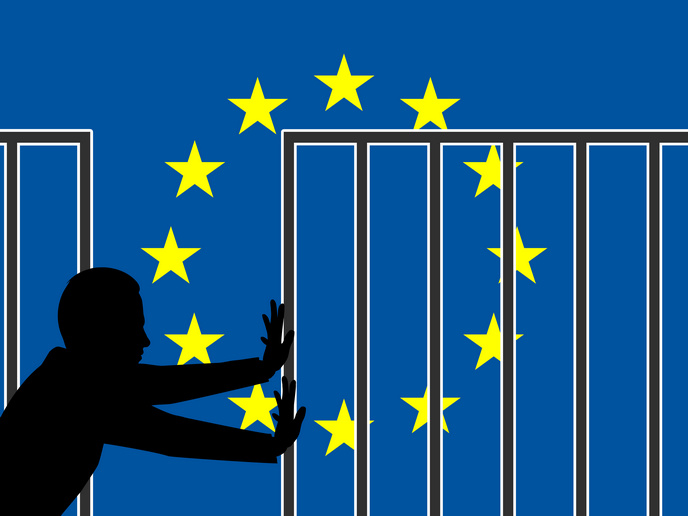When European states shirk responsibility of hosting refugees
There are currently over 100 million people around the world who are displaced as a result of conflict, violence, persecution and/or human rights violations. Of these, about 85 % are hosted by low- and middle-income countries. What is Europe’s position in the face of the clear need for more equitable sharing of responsibility among countries? A new policy brief published under the EU-funded ASILE project explores recent externalisation policy and legal initiatives in Europe and how they impact asylum seekers and refugees’ access to asylum. But what is meant by externalisation? Broadly speaking, it refers to migration control measures mainly implemented by wealthy, developed countries to prevent asylum seekers from reaching their borders. Such measures include visa restrictions, sanctions for carriers who transport asylum seekers, and agreements with refugees’ countries of origin and transit countries.
Evading responsibility
The policy brief analyses the main legal issues and policy challenges that define the externalisation of border controls. These include pushbacks – state measures forcing refugees and migrants back over a border usually immediately after they have crossed it, without taking into account their individual circumstances or allowing them to apply for asylum. “In the EU context, the continued situation at the EU’s external borders with widespread, violent, and systematic pushback practices, are the bluntest examples of states’ efforts to evade responsibility for refugees and their human rights protection,” state the authors in the policy brief. Pushbacks, they go on to say, “stand in violation of EU Member States legal obligations under international human rights law, and their commitments under the UN Global Compact on Migration.” Recent unilateral efforts by European countries – notably Denmark and the United Kingdom – to externalise asylum processing are also discussed in terms of their commitments under the UN Global Compact on Refugees (GCR) and their international human rights obligations. The authors then go on to outline the harmful consequences of externalised asylum initiatives, which from similar international experiences include splitting families, putting people’s lives in limbo, hampering their mental and physical health, and exposing them to gross rights violations.
Progressing to genuine responsibility sharing
The policy brief concludes with a set of five policy recommendations that could guarantee a genuine system of responsibility sharing between states in line with the GCR. In such a system that the EU would actively help to implement, international refugee and human rights laws would be fully upheld. Policy recommendations include accepting “in word and action the foundational role of genuine responsibility sharing to the international refugee system” and understanding “the legal and reputational risks of externalization as well as the potential ripple effect that such approaches can have on global refugee protection.” States also need to “[a]cknowledge and address the harmful consequences of schemes aimed at deterring and diverting refugees and asylum seekers movements” and “[r]ecognize the opportunities as well as the limitations of resettlement and complementary pathways.” Finally, the authors advocate state support for “a humanitarian, non-discriminatory and human rights-centric narrative that does not dehumanize refugees and asylum seekers.” The policy brief draws on insights from a webinar held by ASILE (Global Asylum Governance and European Union’s Role) in February 2022, and has been updated based on subsequent developments. The ASILE project ends in November 2023. For more information, please see: ASILE project website
Keywords
ASILE, refugee, asylum, asylum seeker, human rights, policy brief, border, migration



